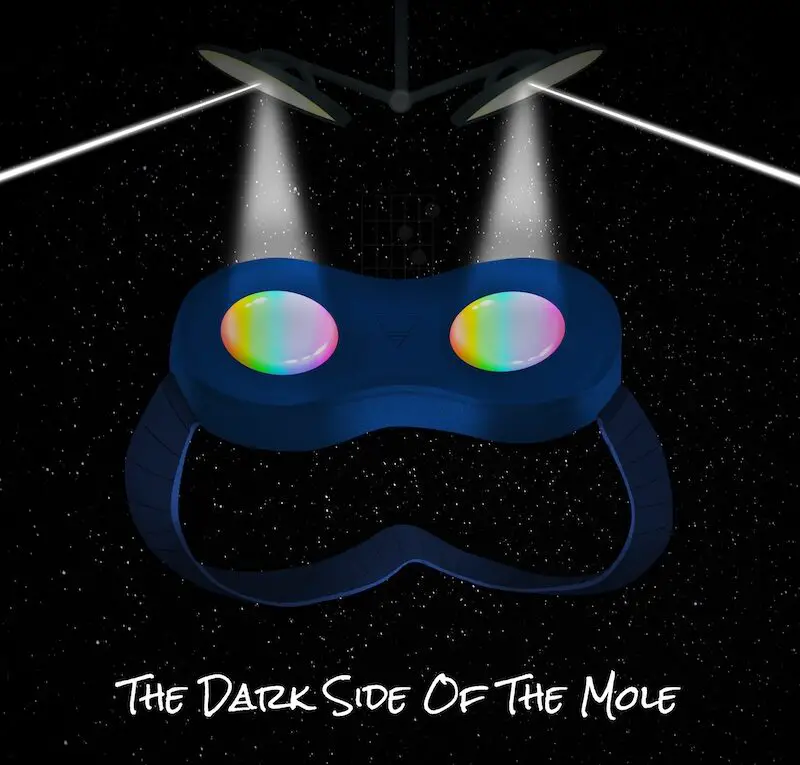REVIEW: Jakub Poćwiardowski & Lili – ‘The Dark Side of the Mole’
With ‘The Dark Side of the Mole,’ Polish collaborators Jakub Poćwiardowski and Lili have delivered a genre-defying odyssey that is equal parts homage, hallucination, and harmonic excavation. What begins as a whimsical nod to a childhood game unfurls into something far more expansive: a sprawling 78-minute tapestry of shifting moods and textures that bends time, memory, and genre.
At its core, this is music as storytelling, but without the need for words. Drawing on the cinematic drama of progressive rock, the otherworldly swirl of ambient electronics, and the emotional weight of orchestral composition, the duo craft a soundscape that is both nostalgic and exploratory.
Jakub’s layered guitars and synths provide much of the album’s pulse, while Lili’s piano work breathes life into the quieter, more introspective corners. Their interplay is both intuitive and deliberate, revealing a deep musical connection built on trust and shared history. Tracks spiral and bloom, never hurried, sometimes fracturing into unexpected textures and time signatures before reassembling in new forms.
‘Time Machine’, split into four movements across streaming platforms, stands out as the album’s thematic anchor. It’s an epic within an epic; evolving through phases of serenity, suspense, and full-blown instrumental transcendence.
Elsewhere, ‘The Chamber of Torture’ introduces a left-turn with guest accordionist Bartek Brosz, best known for scoring the original game that inspired the album. The instrument, often underused in progressive contexts, becomes a textural wildcard, adding an eerie, theatrical, and wholly compelling tone to the release.
And that’s the charm of ‘The Dark Side of the Mole’: it never rests in one emotional or musical register for long. Just when you think you’ve settled into a familiar groove, it peels away another layer, revealing a strange new shape underneath.
There are echoes of Genesis’ more exploratory periods, and plenty of Floydian space, but what’s most striking is how singular the world of this album feels. It’s a testament to the duo’s commitment to reinterpret their shared past, folding in decades of personal and musical evolution into a surreal and deeply human sonic experience.
Fans of expansive, heady instrumental works will find much to savour here. The Dark Side of the Mole isn’t content with being background music. And if you give it the time, it just might take you somewhere unexpected.

